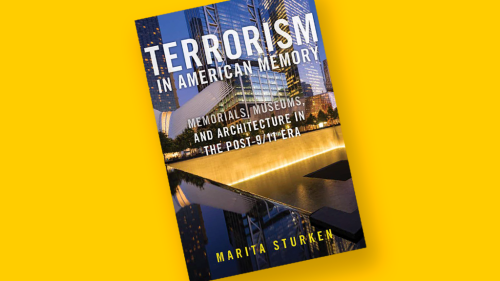Terrorism in American Memory sheds light on the struggles over who is memorialized, who is forgotten, and what that politics of memory reveals about the United States as an imaginary and a nation.

A new book by Professor Marita Sturken explores the ways in which America memorializes acts of terror and what these choices reveal about our national identity. Central to Sturken's analysis is an examination of how architecture and design are employed to shape and materialize public memory.
Terrorism in American Memory: Memorials, Museums, and Architecture in the Post-9/11 Era (NYU Press, January 2022) contrasts the highly nationalistic commemorations of the 9/11 attacks with more recent activist memory projects chronicling the country's long history of racial terrorism.
The process of memorialization can define narratives of national unity, but also be, as Sturken writes, a "site for contestation, disruption, and intervention."
Marita Sturken is Professor in the Department of Media, Culture, and Communication at New York University. She is the author of Tangled Memories: The Vietnam War, the AIDS Epidemic, and the Politics of Remembering (1997), Practices of Looking: An Introduction to Visual Culture (with Lisa Cartwright, third edition 2018), and Tourists of History: Memory, Kitsch, and Consumerism From Oklahoma City to Ground Zero (2007), and is the former editor of American Quarterly.

